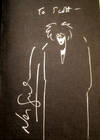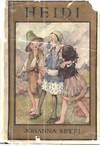![The Fable of the Bees; [together with:] The Fable of the Bees. Part II.](https://d3525k1ryd2155.cloudfront.net/h/279/899/1515899279.0.m.jpg)
The Fable of the Bees; [together with:] The Fable of the Bees. Part II.
by MANDEVILLE, Bernard
- Used
- Condition
- See description
- Seller
-
London, United Kingdom
Payment Methods Accepted
About This Item
Synopsis
The Fable of the Bees: Or Private Vices, Publick Benefits was published in 1705 by Mandeville, philosopher, political economist and satirist. It begins with a poem and continues with a number of essays and dialogues, and is all tied together by the startling and original idea that "private vices" (self-interest) lead to "publick benefits" (the development and operation of society). From that simple beginning, Mandeville saw that orderly social structures (such as law, language, the market, and even the growth of knowledge) were a spontaneous growth developing out of individual human actions.
Reviews
(Log in or Create an Account first!)
Details
- Bookseller
- Peter Harrington
(GB)
- Bookseller's Inventory #
- 158464
- Title
- The Fable of the Bees; [together with:] The Fable of the Bees. Part II.
- Author
- MANDEVILLE, Bernard
- Book Condition
- Used
- Place of Publication
- London: Printed for J. Tonson,
- Date Published
- 1732 & 1733
- Note
- May be a multi-volume set and require additional postage.
Terms of Sale
Peter Harrington
All major credit cards are accepted. Both UK pounds and US dollars (exchange rate to be agreed) accepted. Books may be returned within 14 days of receipt for any reason, please notify first of returned goods.
About the Seller
Peter Harrington
About Peter Harrington
Glossary
Some terminology that may be used in this description includes:
- Poor
- A book with significant wear and faults. A poor condition book is still a reading copy with the full text still readable. Any...
- Octavo
- Another of the terms referring to page or book size, octavo refers to a standard printer's sheet folded four times, producing...
- Gilt
- The decorative application of gold or gold coloring to a portion of a book on the spine, edges of the text block, or an inlay in...
- Calf
- Calf or calf hide is a common form of leather binding. Calf binding is naturally a light brown but there are ways to treat the...
- Spine
- The outer portion of a book which covers the actual binding. The spine usually faces outward when a book is placed on a shelf....
- Rubbing
- Abrasion or wear to the surface. Usually used in reference to a book's boards or dust-jacket.
![The Fable of the Bees; [together with:] The Fable of the Bees. Part II.](https://d3525k1ryd2155.cloudfront.net/h/279/899/1515899279.0.s.jpg)
![The Fable of the Bees; [together with:] The Fable of the Bees. Part II.](https://d3525k1ryd2155.cloudfront.net/h/279/899/1515899279.1.s.jpg)
![The Fable of the Bees; [together with:] The Fable of the Bees. Part II.](https://d3525k1ryd2155.cloudfront.net/h/279/899/1515899279.4.s.jpg)


